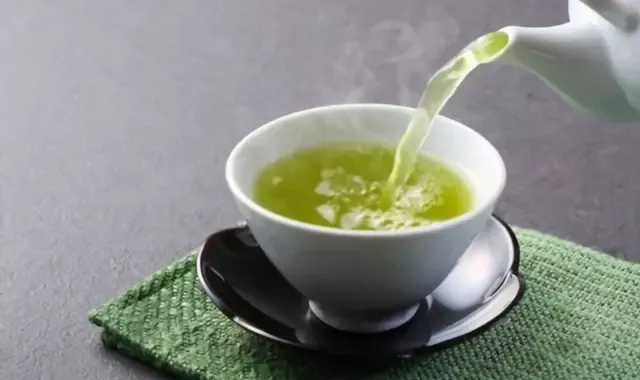For most of us, springtime means sunshine, green grass, and looming flowers, but for some, it can also mean sneezing and watery eyes, or even trouble breathing.
But doctors do know that while thousands of substances can be allergens, some are much more likely to send your immune system into overdrive.
That’s why just eight foods account for 90% of all food allergies ---- tree nuts, eggs, soy, peanuts, fish, shellfish, milk, and wheat.
But why do we have allergies in the first place?!
I mean, how does it make sense that something totally harmless to one person can be lethal to another?
Well, it doesn’t make any sense, at least not yet.
Scientists can’t quite agree on why we have allergies, but they do know that allergies have a genetic component.
Studies have shown that if you suffer from allergies, there’s a 33 percent chance that your kid will develop allergies as well.
And if both parents have allergies, that risk jumps to 70 percent.
But it’s not that the child inherits specific allergies.
They’re just more likely to develop them, so a parent who has an allergy to eggs could have a kid who isn’t allergic to eggs but is allergic to peanuts.
Kids can outgrow their allergies, though.
Allergies around the world have been rising since the early 1980s.
Reports of food allergies among children in the US, for example, increased by 20 percent from 1997 to 2007.
Some scientists suggest that air pollution might be to blame.
Three studies in the early 1990s linked pollutants like sulfur dioxide and carbon monoxide to allergic asthma, which can cause shortness of breath and wheezing.
In one series of studies, researchers found lower instances of allergies among children in what was then East Germany, compared to those who grew up in the more developed West Germany.
Even though the kids in East Germany were exposed to a lot more air pollution than those living in the West, scientists concluded that Western pollution contained more carbon monoxide from automobile exhaust.
We’re talking about allergies, and almost anything can cause them: grass, flowers, ragweed, peanuts, bee stings, penicillin, soy, latex, … the list goes on and on.
An estimated 40 percent of the world’s population suffers from allergies, and that number is on the rise.
But how can a peanut, so small and simple and delicious be so deadly?
And what even are allergies, anyway?
How are they caused?
Can they be prevented, or even cured?
Well, to understand allergies, we first need to talk about your immune system.
Your immune system is meant to keep you healthy, but in people with allergies, they tend to overreact.
And you can lay the blame on your lymphocytes, or white blood cells.
Lymphocytes are like little hall monitors, traveling around your body on the lookout for antigens -- foreign invaders like parasites, bacteria, and viruses.
When a lymphocyte detects an antigen, it begins producing large, y-shaped proteins called antibodies.
Humans have almost ten billion different kinds of antibodies, and each one binds to a specific antigen, neutralizing the threat.
It’s like having the keys to ten billion different locks.
But in an allergic person’s immune system, the lymphocytes get confused.
They treat allergens like they’re antigens.
Allergens themselves are really just a kind of enzyme, called an antigenic protein.
Scientists don’t know what it is about the structure of these proteins that cause such alarm in some people's immune systems.
They don’t resemble viruses or bacteria, but the immune system still treats them like a threat.
Natural Allergy Remedies
Here is some advice about how to fight allergies
1. Enter Alkaline Water
Drink water to encourage the natural systems of detoxification.
You should drink at least 8-10 glasses of water.
Good hydration of the body relieves the symptoms of allergies.
Bottled water and tap water in most cases contain acids, which are associated with allergies.
Therefore, you should take alkaline water as much as possible.
If there is no alkaline water to be bought, there are special devices that alkalize the water.
2. Drink green tea
Both of these chemicals are closely associated with allergies, and because green tea blocks their production and allergic symptoms are reduced.
If you do not like the taste of green tea, mix it with fruit shakes, but avoid milk products, which can worsen the allergies.
3. Use nettle
Unlike pharmaceuticals that cause many side effects, nettle is completely natural and safe. Use it as a tea or drops that can be bought in herbal pharmacies.
4. Saline solution
Rinse the nostrils with a salt solution.
Simply dissolve sea salt in warm water and just rinse your nostrils using a syringe.
This is a great way to get rid of mucus and germs.
5. Eliminate sugars
Sugar is high in acidity which helps allergy. Completely remove industrial sugars from use, at least during allergy season.
Use Natural Allergy Remedies with regular Allergy Remedies.
Allergies are a common occurrence, affecting a significant portion of the population worldwide.
While scientists have not yet fully understood why allergies exist, they do know that there is a genetic component to allergies, and individuals with allergies are more likely to have children who develop allergies as well.
The prevalence of allergies, including food allergies, has been increasing over the years, potentially due to factors like air pollution.
Allergies occur when the immune system overreacts to substances, treating them as threats even though they are harmless to most people.
The immune system produces antibodies in response to these allergens, causing allergic symptoms.
The structure of allergenic proteins is not well understood, but they can trigger an immune response in susceptible individuals.
While there is no cure for allergies, there are natural remedies that can help alleviate symptoms.
Drinking alkaline water, consuming green tea, using nettle, rinsing the nostrils with a saline solution, and eliminating sugars from the diet are some of the suggested natural approaches to managing allergies.
It's important to note that these natural remedies can complement regular allergy remedies but should not replace medical advice or prescribed treatments.
Further research is needed to fully understand the mechanisms behind allergies and develop more effective prevention and treatment strategies.
In the meantime, individuals with allergies can work with healthcare professionals to identify triggers, manage symptoms, and improve their quality of life.
FAQs
Q: Why do allergies exist, and how can harmless substances be lethal to some individuals?
Scientists have yet to fully understand the reasons behind allergies.
However, they know that allergies have a genetic component, and individuals with allergies are more likely to have children who develop allergies.
The immune system overreacts to allergens, treating them as threats even though they are harmless to most people.
Q: Are allergies inherited? Can specific allergies be passed down from parents to children?
Allergies have a genetic component, and studies have shown that if a person suffers from allergies, there is a 33 percent chance that their child will develop allergies as well.
If both parents have allergies, the risk increases to 70 percent. However, children are not necessarily inheriting specific allergies but are more likely to develop allergies in general.
Q: Can children outgrow their allergies?
Yes, children can outgrow their allergies. While some allergies persist throughout life, others may diminish or disappear as a child's immune system develops and changes.
It is important to consult with healthcare professionals for proper diagnosis, monitoring, and guidance.
Q: Why have allergies been increasing since the 1980s?
The prevalence of allergies, including food allergies, has been on the rise since the early 1980s.
Although the exact reasons for this increase are not fully understood, factors such as air pollution have been suggested as possible contributors.
Studies have linked pollutants like sulfur dioxide and carbon monoxide to allergic asthma.
Q: What are some natural remedies for managing allergies?
Natural remedies can help alleviate allergy symptoms, but they should complement regular allergy remedies and not replace medical advice. Some natural approaches include drinking alkaline water, consuming green tea, using nettle as a tea or drops, rinsing the nostrils with a saline solution, and eliminating industrial sugars from the diet during allergy season.
Q: Is there a cure for allergies?
Currently, there is no known cure for allergies. However, ongoing research aims to better understand the mechanisms behind allergies and develop more effective prevention and treatment strategies.
Working with healthcare professionals can help individuals with allergies identify triggers, manage symptoms, and improve their quality of life.
Please note that for personalized advice and treatment, it is important to consult with healthcare professionals or allergists.






